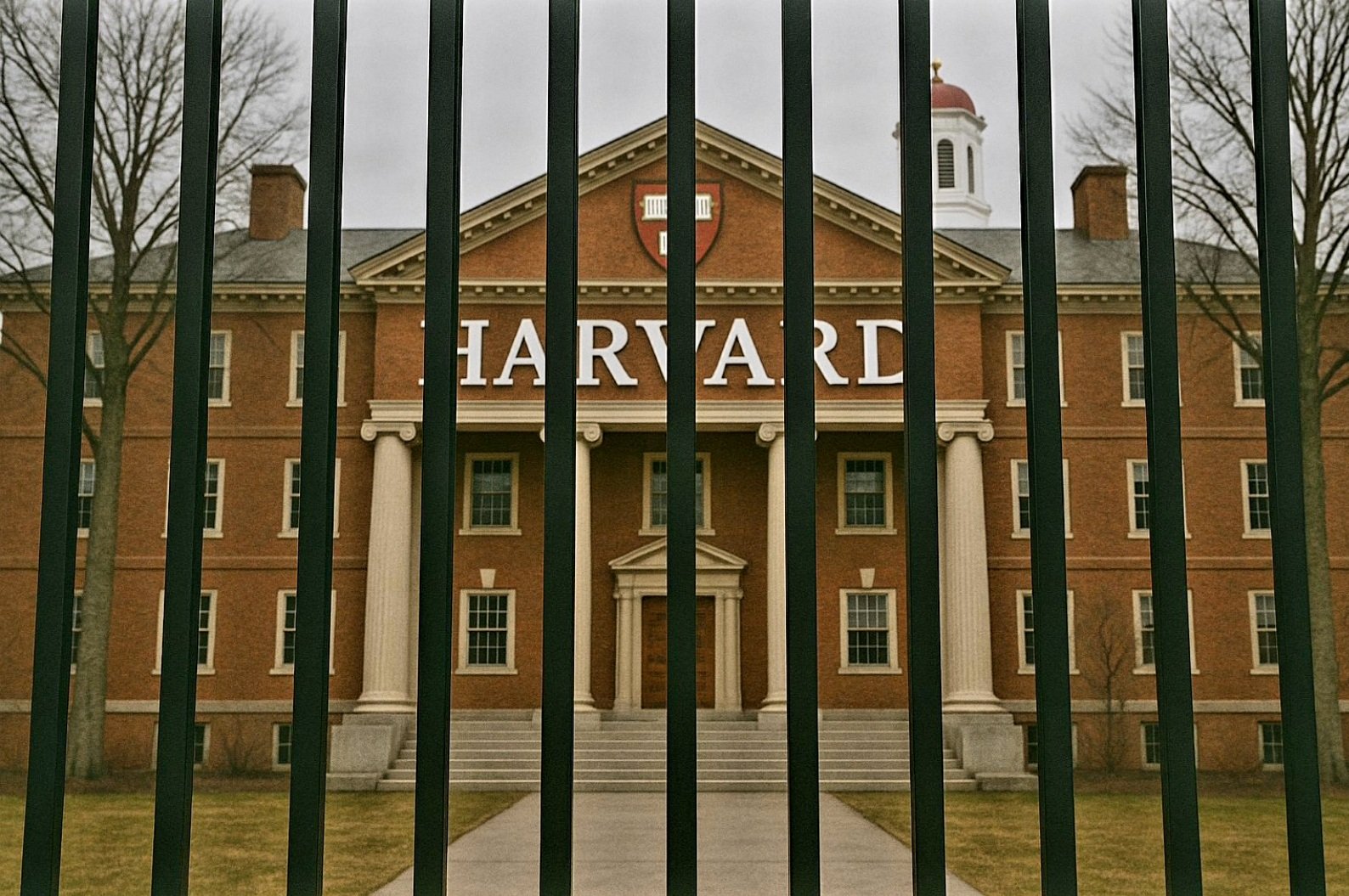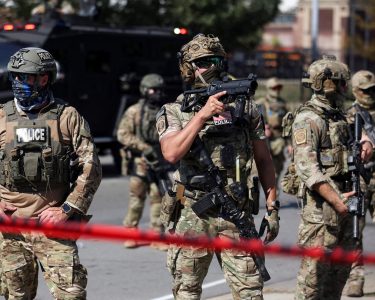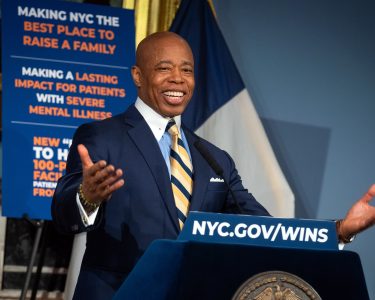Judge Blocks Trump Move
Harvard’s Right to Enroll International Students Upheld
Summary
- A federal judge halted the Trump administration’s attempt to revoke Harvard’s international student program, citing “irreparable harm.”
- DHS accused Harvard of promoting violence, antisemitism, and ties to the Chinese Communist Party.
- Harvard sued, calling the move unlawful and a violation of free speech rights.
- The case is part of broader federal action targeting universities over alleged ideological bias.
Boston – A federal judge in Massachusetts delivered a significant blow to the Trump administration’s aggressive campaign against Harvard University on Friday, issuing a temporary restraining order to block a policy that would have barred the Ivy League institution from enrolling international students.
U.S. District Judge Allison D. Burroughs, appointed by former President Barack Obama, ruled that the Department of Homeland Security’s (DHS) decision to revoke Harvard’s certification in the Student and Exchange Visitor Program (SEVP) would cause “immediate and irreparable injury” to the university and its more than 7,000 international students.
The ruling, issued just hours after Harvard filed a lawsuit in Boston federal court, underscores a growing clash between the Trump administration and academic institutions over academic freedom and immigration policy.
The controversy erupted on Thursday, May 22, 2025, when DHS Secretary Kristi Noem announced the immediate termination of Harvard’s SEVP certification, effective for the 2025-2026 academic year.
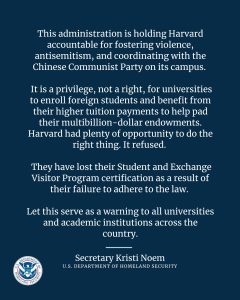
The SEVP program allows universities to sponsor international students on F-1 and M-1 visas. Without it, Harvard’s international students, comprising 27.2% of its enrollment, including significant numbers from China, Canada, India, and the UK, would face deportation or be forced to transfer to other institutions.
Noem justified the revocation by accusing Harvard of “fostering violence, antisemitism, and coordinating with the Chinese Communist Party,” though no evidence was provided to substantiate these claims.
The DHS also demanded that Harvard submit extensive records of international students’ conduct, including videos or audio of protest activities, within 72 hours to restore its certification, a requirement Harvard’s lawsuit described as “unprecedented” and lacking legal basis.
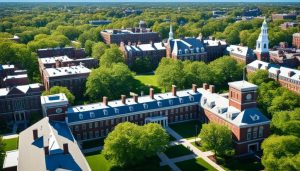
In the swift legal response filed on May 23, 2025, it labeled the revocation “arbitrary, capricious, and a blatant violation of the First Amendment.” The university argued that the move was retaliation for its refusal to comply with the Trump administration’s demands, which included eliminating diversity, equity, and inclusion (DEI) programs, altering admissions and hiring practices to remove race-based considerations, and auditing faculty for ideological alignment.
Harvard President Alan Garber called the action “a direct attack on our academic mission,” emphasizing that international students, who pay higher tuition rates, are critical to the university’s financial and intellectual vitality. In 2023-2024, international students contributed over $43 billion to U.S. universities, with Harvard alone hosting thousands who drive research and global collaboration.
Judge Burroughs’ temporary restraining order, which halts the revocation for two weeks, found that Harvard demonstrated a likelihood of success in proving the policy’s illegality and the severe harm it would inflict. She scheduled hearings for May 27 and 29, 2025, to further evaluate the case.
The ruling aligns with a separate decision by U.S. District Judge Jeffrey S. White in California, who on May 22, 2025, issued a nationwide injunction blocking the Trump administration from terminating the legal status of over 4,700 international students since March 2025.
Judge White criticized the administration’s use of an FBI database to target students, including those involved in pro-Palestinian protests or with minor infractions like DUIs, as “arbitrary and capricious.”
The Trump administration’s actions against Harvard are part of a broader offensive against universities perceived as resistant to its agenda. Since President Trump’s inauguration on January 20, 2025, the administration has frozen $2.65 billion in federal grants to Harvard, threatened to revoke its tax-exempt status, and launched investigations into alleged civil rights violations related to antisemitism.
These moves follow Harvard’s refusal to adopt reforms demanded by a Trump task force on antisemitism, which sought to overhaul the university’s disciplinary processes and Middle East-related curricula. In contrast, Columbia University recently capitulated to similar pressures, agreeing to revise its policies after losing $400 million in federal funding.
The impact on Harvard’s international students has sparked widespread concern. Leo Gerden, a Swedish student set to graduate in 2025, called the ruling “a great first step” but expressed anxiety about the ongoing legal battle, telling The Boston Globe, “We’re caught in a political crossfire.” Kat Xie, a Chinese student, voiced fears of deportation, noting the personal toll of the uncertainty.
On social media, reactions are sharply divided, with some users praising Harvard’s defiance as a stand for academic freedom, while others echo the administration’s narrative, labeling international students as potential security risks or “Hamas supporters.”
Harvard’s lawsuit, backed by prominent Republican lawyers, argues that the DHS violated federal regulations, which require specific findings of noncompliance for SEVP revocation, and infringed on constitutional protections.
Immigration attorney Leon Fresco highlighted the financial stakes, noting that losing international students could cost Harvard millions annually. The university’s legal filing also references a 2020 precedent when a federal judge blocked a similar Trump-era policy targeting international students during the COVID-19 pandemic, suggesting a pattern of overreach.
The Trump administration, through spokespeople Abigail Jackson and Tricia McLaughlin, defended the revocation as within its immigration and national security authority, accusing “unelected judges” of obstructing policy. However, legal experts argue the administration’s failure to provide evidence or follow regulatory processes weakens its case.
Harvard has vowed to continue fighting, with President Garber stating, “No government should dictate what private universities can teach, whom they can admit and hire, or which areas of study they can pursue.”
The outcome of this high-stakes confrontation could reshape the relationship between the federal government and America’s universities, with implications for academic freedom, immigration policy, and the global competitiveness of U.S. higher education.


